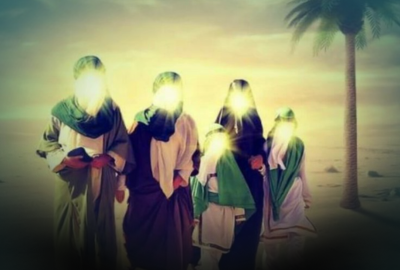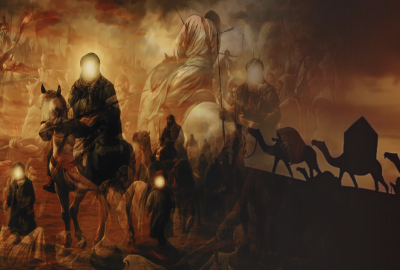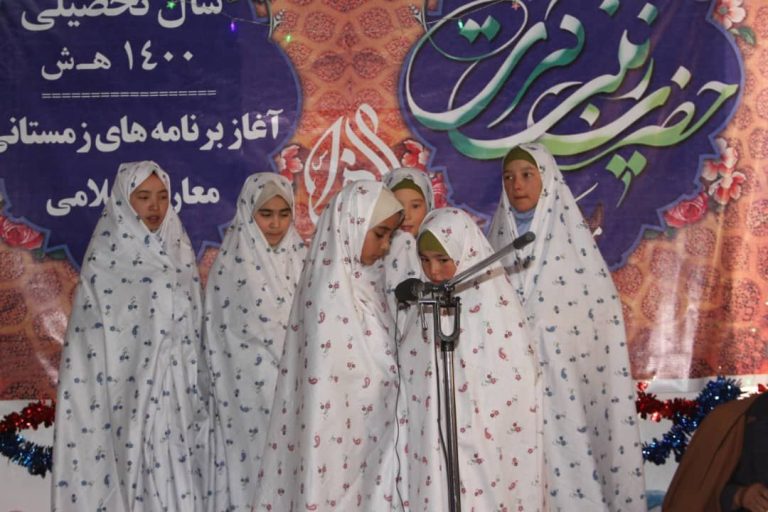What is Eid Al-Mubahila? Your Questions Answered
What is a Mubahila?
Mubahila, derived from the Arabic root word bahala, means to invoke the curse of God upon the liars in a dispute.
In Islam, the term gained profound significance when Prophet Muhammad (saww) used it to conclusively prove the truth of Islam to the Christians of Najran.
This monumental event, commemorated as Eid Al-Mubahila, is a testament to the unique status and purity of the Prophet’s noble family, the Ahlulbayt (as).
What Was the Historic Context to Mubahila?
During the latter years of his prophetic mission, Prophet Muhammad (saww) sent letters inviting emperors, kings, and communities to Islam.
Among these recipients were the Christians of Najran, a prominent tribe in the Arabian Peninsula, known for their theological influence and religious scholarship.
Who Were the Christians of Najran?
Responding to the Prophet’s (saww) invitation, a delegation of priests and scholars journeyed to Madina.
They inquired what they were being invited towards.
The Prophet (saww) responded:
- They were being invited towards tawhid
- The Prophet (saww) was the final prophet
- Jesus (as) was also a prophet.
Despite respectful exchanges, a core dispute arose: how could Jesus (as) be a prophet if he had no father?
How Does the Quran Explain Nabi Adam (as)’s Prophethood?
Allah (swt) addresses this question directly:
“Surely the example of Isa (as) is like that of Adam (as). He was created from clay, then Allah said to him, ‘Be!’ and he was.” (Surah Ale Imran, Verse 59)
This clear analogy silenced logical objections.
Adam (as) had neither father nor mother, yet he was a created being, a prophet, and a human, debunking the divinity attributed to Jesus (as).
What Was the Verse of Mubahila?
When the Christians remained unconvinced, Allah (swt) revealed:
“If anyone disputes in this matter after knowledge has come to you, say: ‘Come, let us call our sons and your sons, our women and your women, ourselves and yourselves. Then let us earnestly pray and invoke the curse of Allah upon the liars.’” (Surah Ale Imran, Verse 61)
This verse formed the divine command for the momentous Mubahila.
The Christians agreed to the mutual invocation the next day.
The stage was set for a decisive moment: truth would stand against falsehood under divine judgment.
Who Represented Islam During Mubahila?
On the day of Mubahila, the Prophet (saww) brought forth none other than:
- Imam Hassan (as) and Imam Hussain (as), representing “our sons.”
- Lady Fatima (sa), representing “our women.”
- Imam Ali (as), representing “ourselves,” alongside the Prophet (saww) himself.
This exclusive gathering emphasized that only the purest souls could stand for truth in this divine test.
What is the Significance of Each Family Member During Mubahila?
Each member of the Ahlulbayt (as) symbolized purity, unwavering faith, and spiritual authority.
Their presence demonstrated their inseparability from the Prophet’s mission and legacy.
What Happened on the Day of Mubahila?
As the Christian delegation witnessed these radiant figures, their leader famously remarked that if these holy souls raised their hands in prayer, mountains would move.
“O Christians! Surely, I see the faces that if they ask God to remove a mountain from its place, He would surely remove it. Therefore, do not do imprecation (i.e. invoking curses); otherwise, you will perish, and there will not remain any Christian on the face of the earth, up to the Day of Resurrection.” (Source)
Fearing destruction and divine wrath, they withdrew from the imprecation and chose peaceful coexistence instead.
What Was the Aftermath of Mubahila?
The Christians agreed to pay jizya (a tax for protection) and retained freedom of worship under Islamic governance.
No violence occurred, showcasing Islam’s emphasis on peace and justice.
What are the Spiritual Lessons from Mubahila?
This event taught Muslims the power of truth, the unmatched status of the Ahlulbayt (as), and the value of dialogue over conflict.
It reinforced the notion that true faith withstands scrutiny and divine judgment.
How Does Mubahila Act as Proof of the Ahlulbayt’s (as) Purity and Authority?
The Mubahila irrevocably affirmed that no one but the Prophet (saww)’s immediate family possessed the required purity for such a divine challenge, solidifying their spiritual leadership in Islam.
How Do Muslims Observe Eid Al-Mubahila?
Around the world, believers mark Eid Al-Mubahila by gathering for remembrance, reciting the relevant verses, performing extra prayers, and reflecting on the lessons of steadfast faith and familial loyalty.
What are the Recommended Acts on Eid Al-Mubahila?
- Recite Surah Aal-Imran (3:59–61).
- Offer recommended prayers (Nafilah).
- Give sadaqa to those in need.
- Gather in mosques or homes to discuss the event.
What are Common Misconceptions About Mubahila?
Some confuse Mubahila as a battle, but it was a peaceful spiritual stand-off.
Others wrongly limit its significance to history, ignoring its enduring theological impact.
What is the Relevance of Mubahila in Modern Times?
In a world where truth is often obscured by noise, the story of Mubahila reminds Muslims to stand firm, speak clearly, and uphold justice, drawing courage from the pure Ahlulbayt (as).
Conclusion: Renewing Commitment to Ahlulbayt (as)
Eid Al-Mubahila isn’t just a historical event.
It’s a living testament to truth and purity.
By remembering this day, we honor the sacrifice and moral fortitude of the Ahlulbayt (as) and renew our pledge to follow their luminous path.
References and Further Reading
Al-Islam.org – The Event of Mubahila
Qur’an Surah Aal-Imran (3:59–61)
Jaffari.org – Eid-e-Mubahila
Frequently Asked Questions (FAQs)
Eid Al-Mubahila commemorates the historic event in which Prophet Muhammad (saww) invited the Christian delegation of Najran to a mutual invocation (Mubahila) to affirm the truth of Islam. It is significant because it publicly confirmed the elevated status of the Ahlulbayt (as) and established their purity and truthfulness in the eyes of all.
‘Mubahila’ means mutual invocation of curses. In the Quran (Surah Aal-Imran, 3:61), it refers to the act of calling upon God to curse the liars in a religious dispute. It was used by Prophet Muhammad (saww) as a final proof in a theological debate with the Christians of Najran.
Prophet Muhammad (saww) took only members of his immediate family: Imam Hassan (as) and Imam Hussain (as) as “our sons,” Lady Fatima (sa) as “our women,” and Imam Ali (as) as “ourselves.” This powerful moment highlighted the unmatched status of the Ahlulbayt (as).
On the Day of Mubahila, the Christian delegation saw the pure and radiant presence of the Ahlulbayt (as) and, fearing divine punishment, chose not to proceed with the imprecation. Instead, they agreed to a peaceful treaty, paying jizya under Muslim protection. This marked a clear moral and spiritual victory for Islam.
Eid Al-Mubahila is celebrated with remembrance, duas, and acts of charity. Believers reflect on the role of the Ahlulbayt (as) in upholding truth and may engage in recommended acts such as prayer, reciting specific verses, and giving sadaqa in their name.
The Verse of Mubahila (Surah Aal-Imran 3:61) is a divine instruction for the Prophet (saww) to bring his closest family members to call upon God’s curse on liars. This verse uniquely elevates the Ahlulbayt (as), as they were the only ones chosen for this pivotal moment – showing their purity and divine favor.










